

Sequence of events for the tour. source
Imjingak Station
Out of the three locations, Dorasan station and the Joint Security Area are the only locations that are accessible by tourists. The Kaesong Industrial Complex is in North Korea, therefore tourist access is very limited. Visiting the Joint Security Area requires a reservation three months ahead, therefore I was not able to organize it as part of the trip.
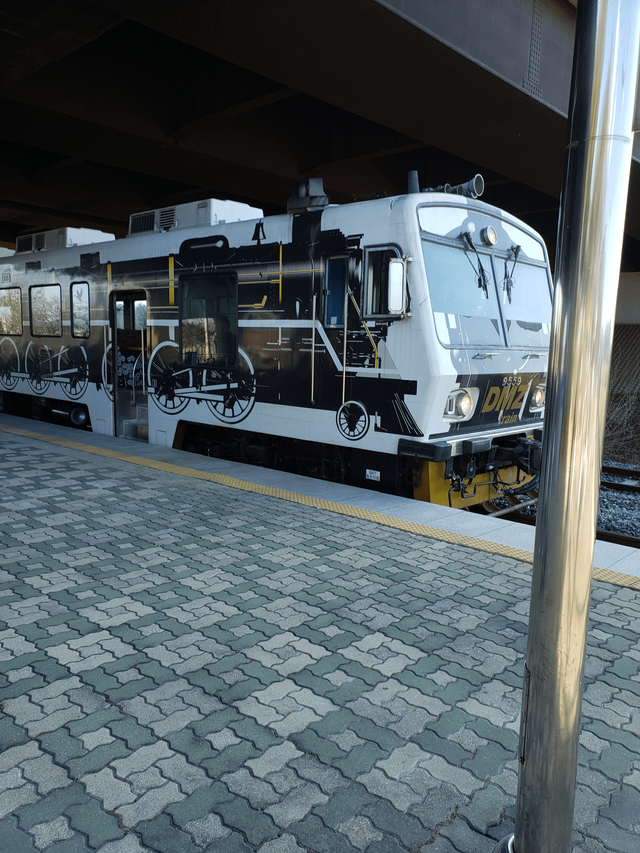
In order to reach Dorasan Station, I got on the DMZ Train at Imjingak Station. In order to get on the DMZ train, one must fill out an application to get on the train.
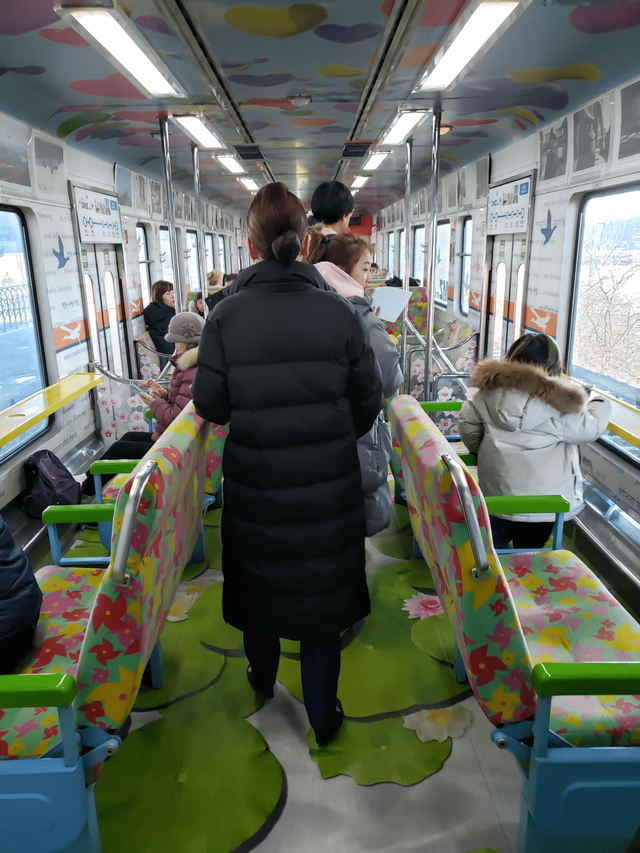
Inside the train.
Once inside the train, it was filled with vibrant decorations which encouraged a happy atmosphere. The benches had the shapes of windmills, which represented an expression for peace.
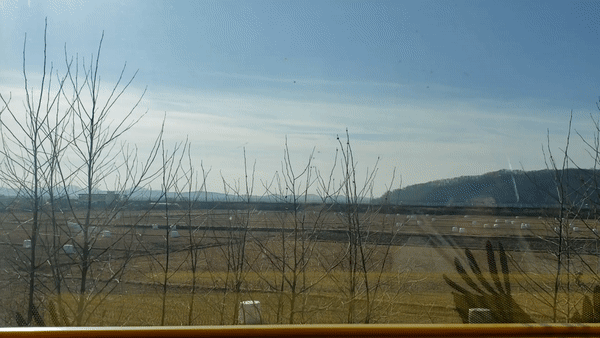.gif)
The ride to Dorasan Station.
Arrival
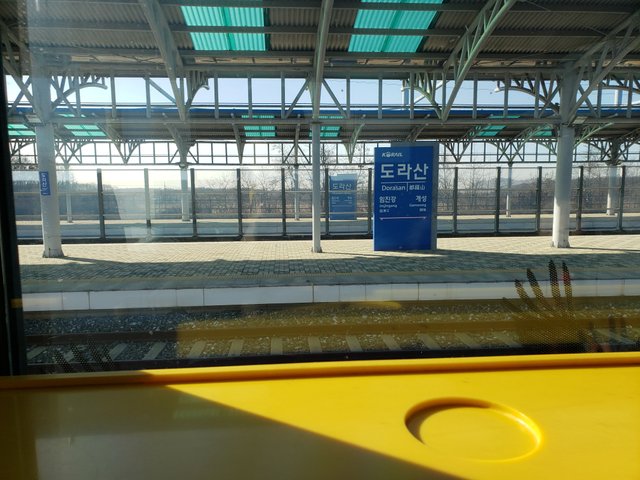
Arrival.
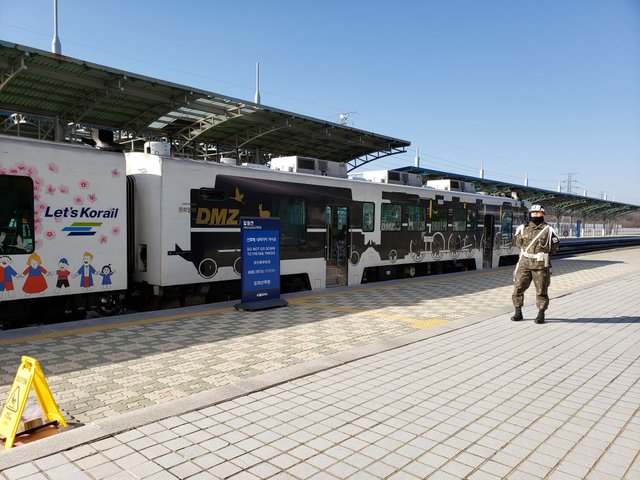
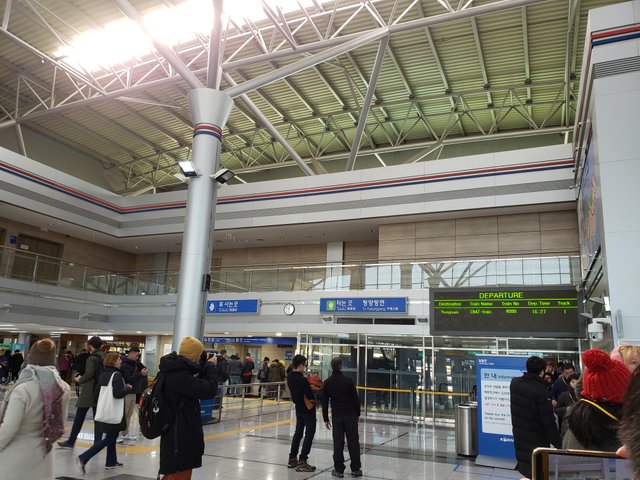
Inside the station.
After getting off the station, we needed to transition over to a tour bus in order to reach the next destinations within the Dorasan region. It was interesting how there were certain restrictions regarding where we’re allowed to take pictures. For example, we weren’t allowed to take pictures in the tour bus, but we can take pictures of the outside from within the bus.
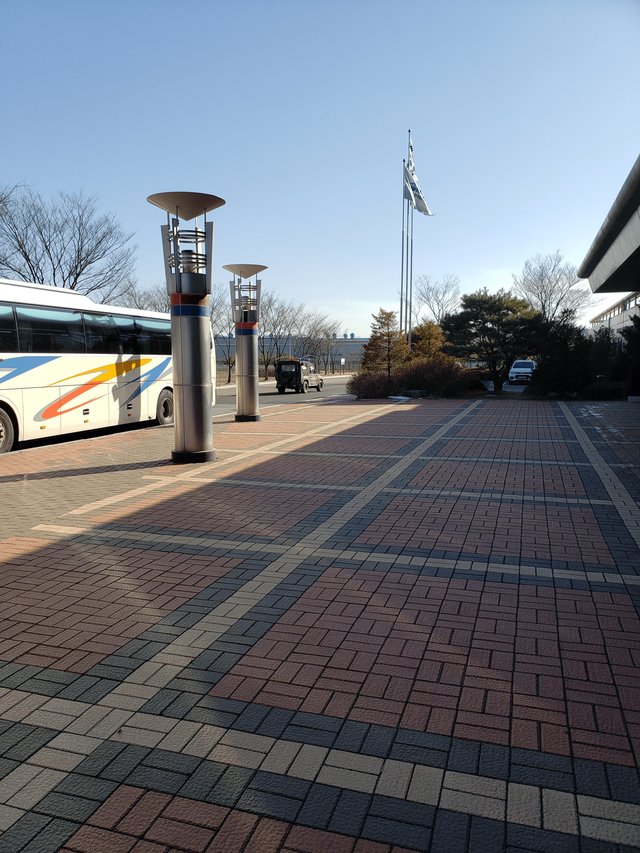
Dorasan Peace Park
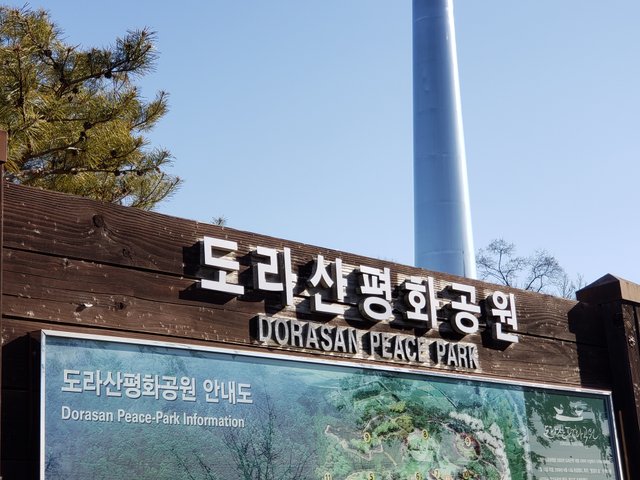
Our first stop was at the Dorasan Peace Park, which was constructed when Kim Dae-Jung and George Bush were presidents of their respective countries. This park started its architectural planning since the opening of Dorasan station in 2002. Gyeonggi provincials voluntarily donated their money and trees to build the “Unification Forest”. This park will facilitate youths to better understand the history of the DMZ.
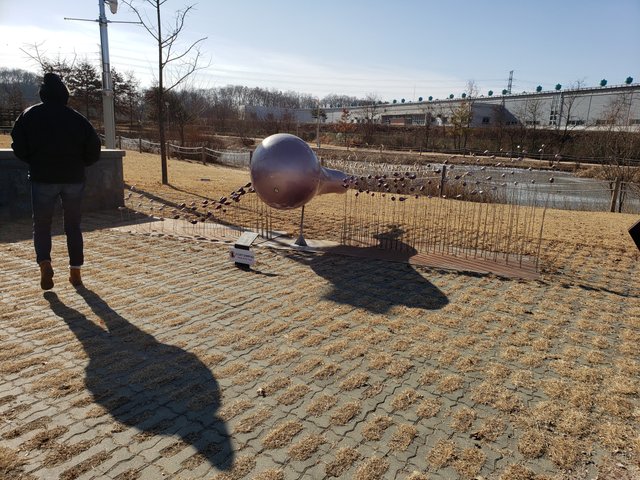
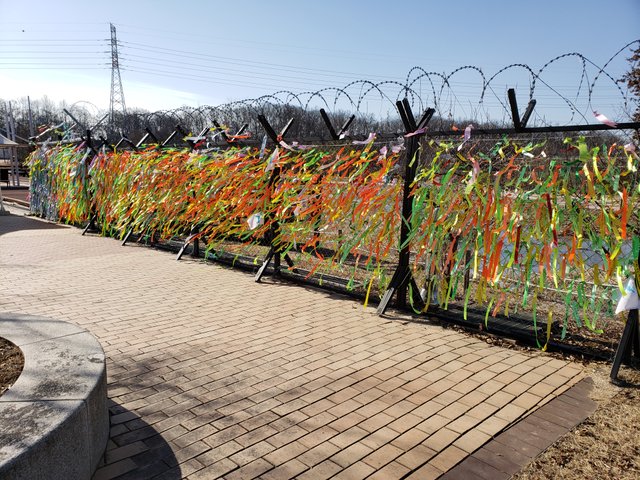
It was interesting to see deer around the Dorasan Peace Park, as the DMZ is big on nature conservation, as this zone that was drawn out 2km above and below the demarcation line is considered to be one of the most untouched areas of land in the world. In addition to deer, there are rare species such as Manchurian or red-crowned cranes, the Asiatic black bear, and the spotted seal.
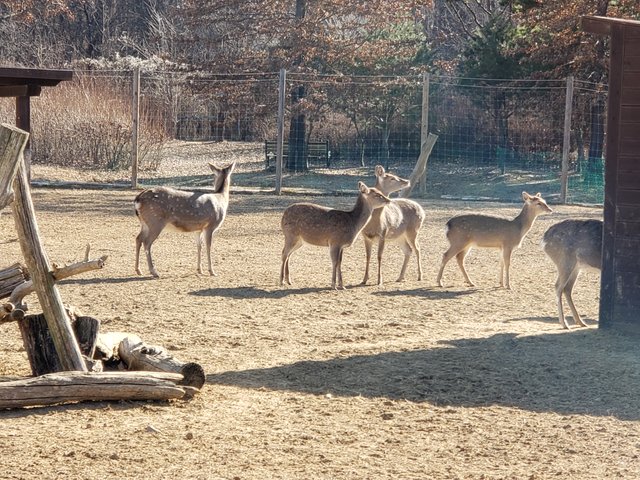
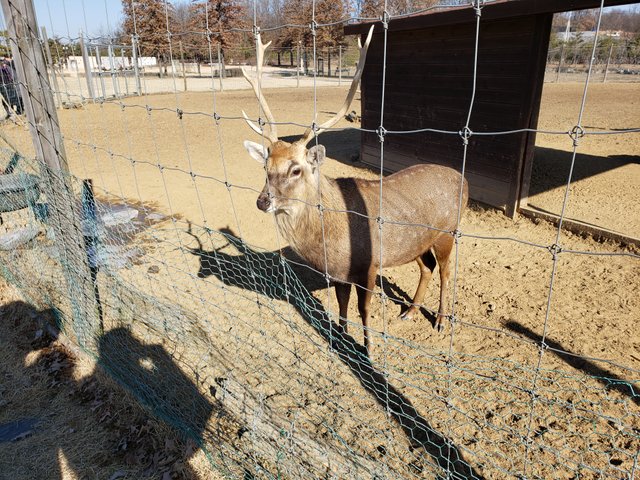
A Dorasan deer.
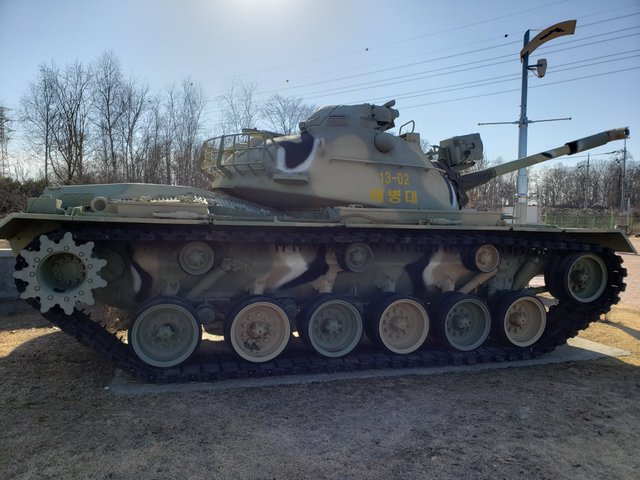
A preserved tank.
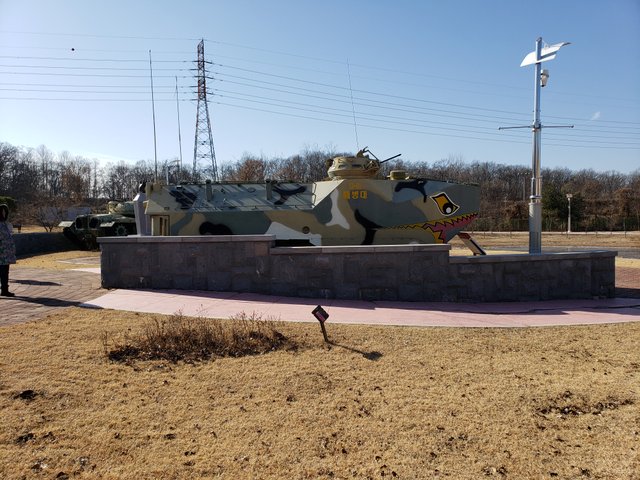
Another preserved tank.
The Prescence of Landmines
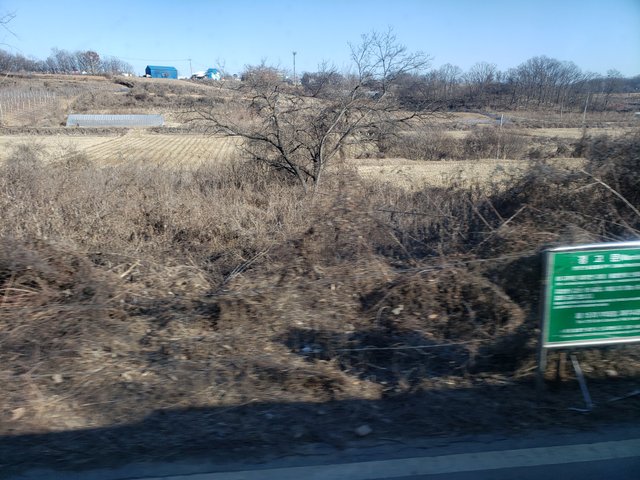
What I felt was interesting was that during the bus ride, the guide explained that there were areas where landmines haven’t been cleared yet. This felt surreal to me in that such an area far away from the border can still be considered a dangerously active land of war.
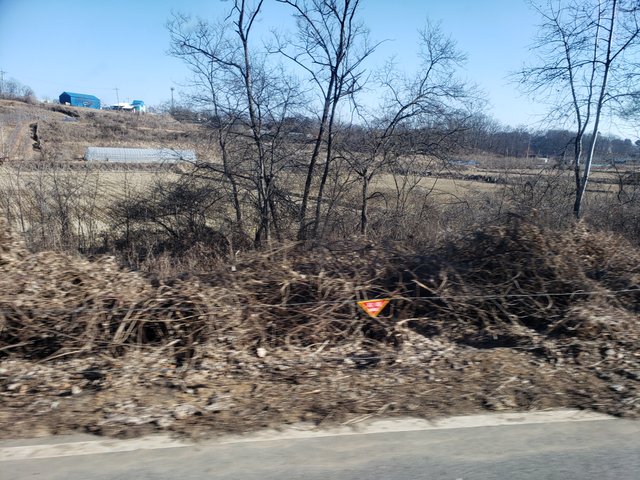
These wires are in place to keep people out.
Dorasan Peace Observatory
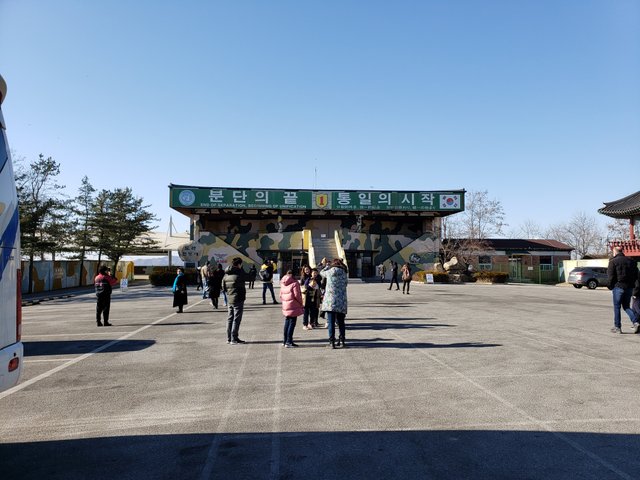
"End of separation, beginning of unification."
The next stop to the tour was the Dorasan Peace Observatory, which features a theater, and a rooftop terrace where you can view the North Korean side through a row of telescopes.
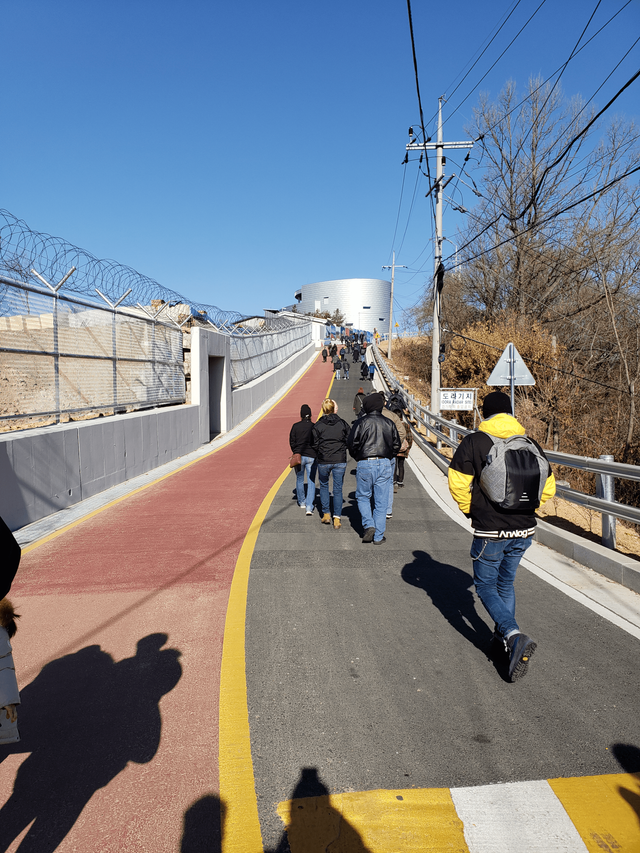
On the road to the observatory.
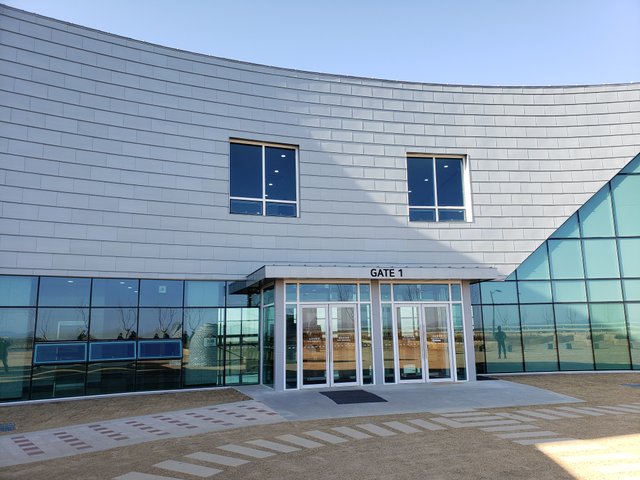.jpg)
The Dorasan Peace Observatory.
I was able to get a very clear look at the Kaesong Industrial Complex through the telescope. I was also able to take a few pictures of these views by placing my phone camera into the lens of the telescope.
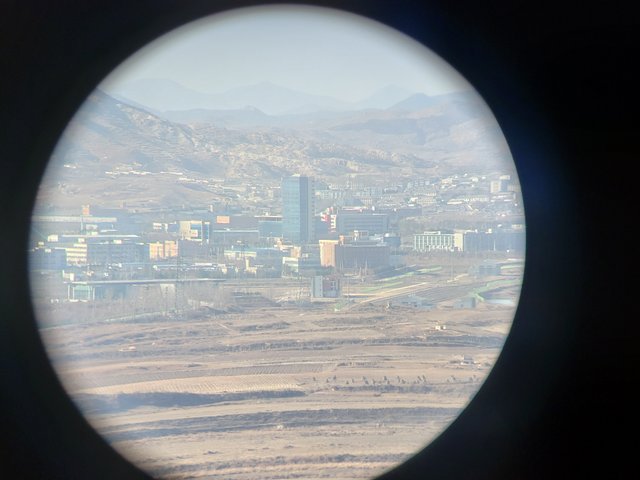.jpg)
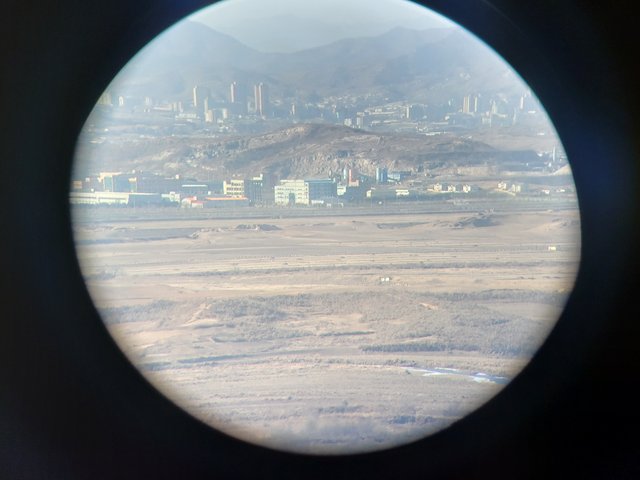
Views of the Kaesong Industrial Complex.
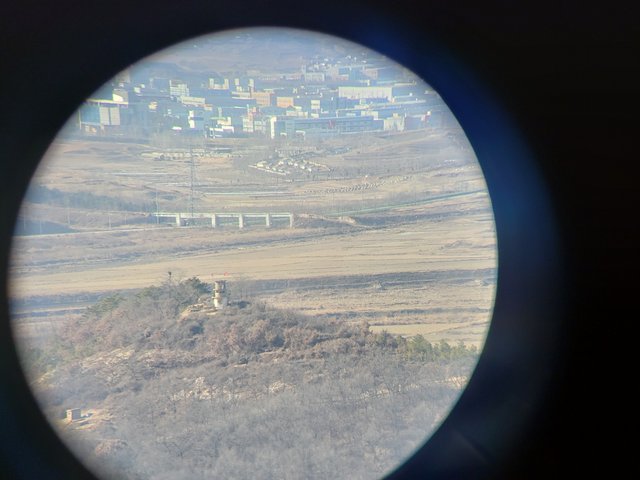
A North Korean outpost.
What was interesting that I thought about while taking these telescope pictures was that despite the minimal physical distance, I can feel the emotional distance between these two countries. The Kaesong Industrial Complex was less than 50 km away from the observatory, yet there are still so many barriers preventing the South Koreans from accessing this space. This was once again something that can only be felt through being in these spaces in person rather than looking at it through something like Google Maps.
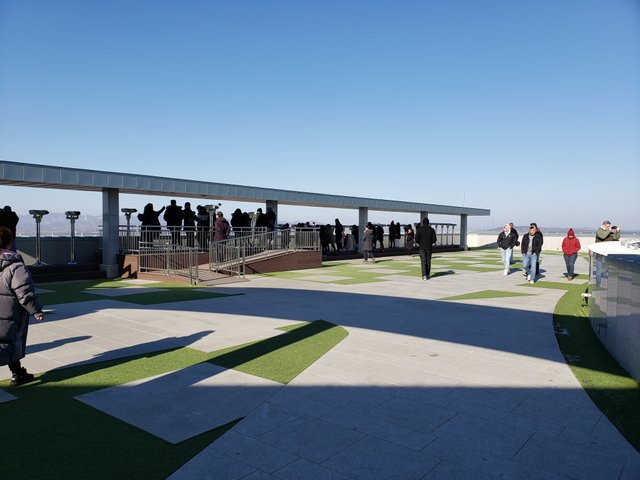
The roof of the observatory with a row of telescopes.
The 3rd Invasion Tunnel
The last stop of the guided tour was the 3rd Invasion Tunnel. This was called the Third Tunnel of Aggression, and it is one of the four tunnels that was built under the border between North and South Korea. It was built by North Korea as part of an invasion plan on Seoul, the capital of South Korea.

source
At first, they denied having built it in the first place, then they claimed that the tunnel was part of a coal mine. The imcomplete tunnel extends as far as 1,635 meters.
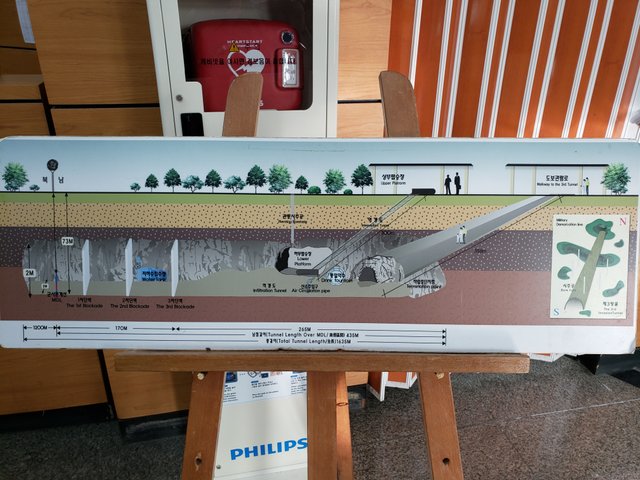
Diagram of the Tunnel.
DMZ Theater
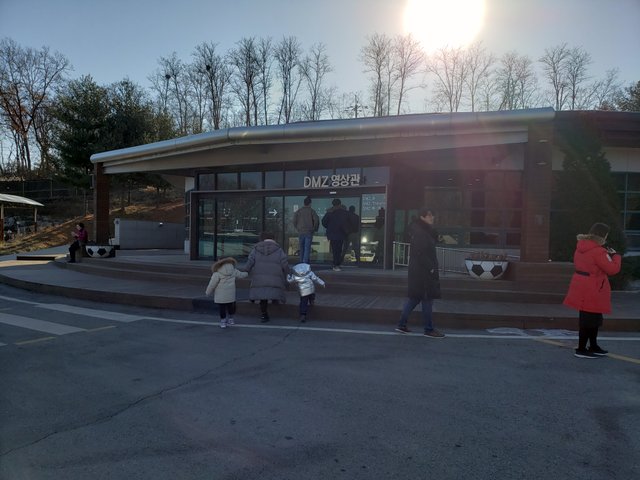
The DMZ Theater.
Before we all headed into the tunnel, we visited the DMZ theater, where they showed us a brief history of the four tunnels that were constructed that planned for the Seoul invasion. From my perspective, there was a slight feeling of South Korean propaganda that was sprinkled in throughout the objective history. There’s no denying that North Koreans built the tunnels, but the way they were labeled throughout the presentation felt very patriotic.
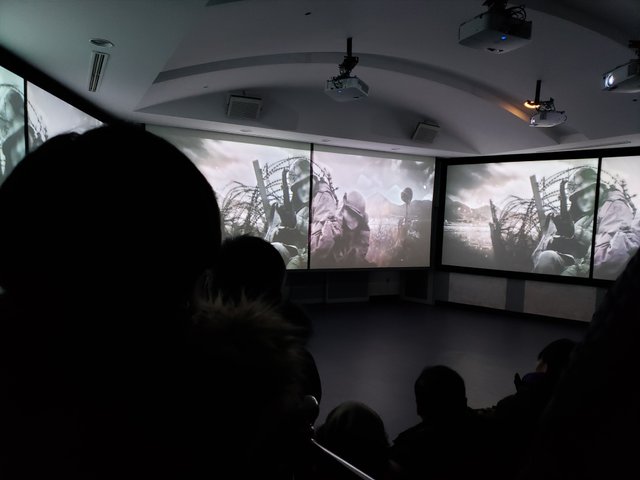
The Presentation.
The Tour
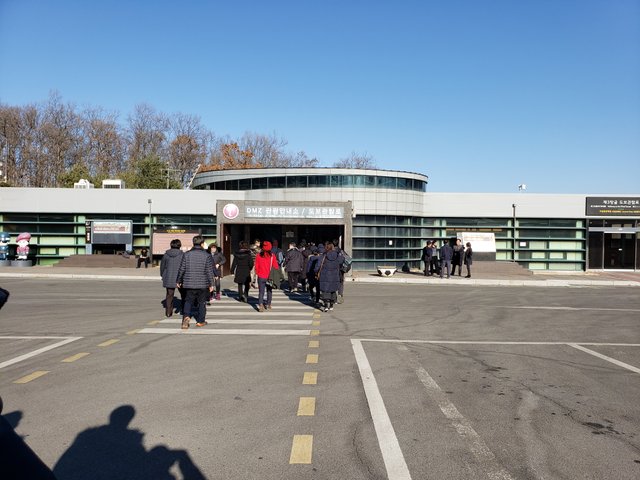
After the presentation, we all walked over to the 3rd tunnel. Due to regulations, we were not allowed to take pictures of inside the tunnel itself. We had to wear yellow safety helmets due to how cramped this space is. Despite how long it is, I’d say the height is a little less than 5 feet. My back was hurting from how I was crouching for so long.
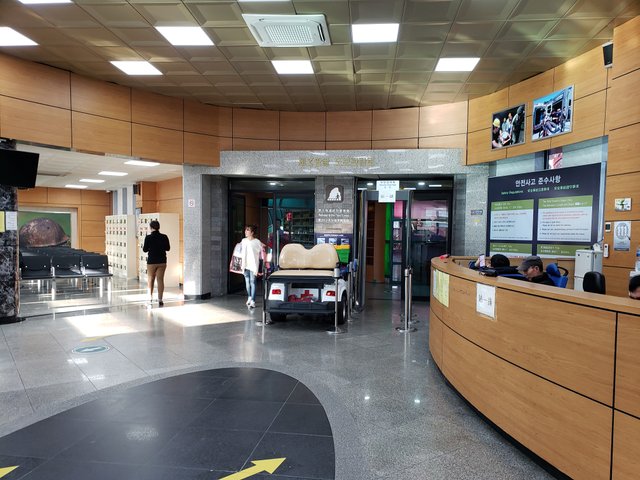
Entrance to the tunnel.
Conclusion
Overall, it was quite an eye-opening experience, and I would’ve regretted not going on this trip. This tour gave me a feel of reality to the tension that still exists between North and South Korea that is shown either through the interactions and conversations I have with South Koreans, or the environment that I am surrounded in near the border.
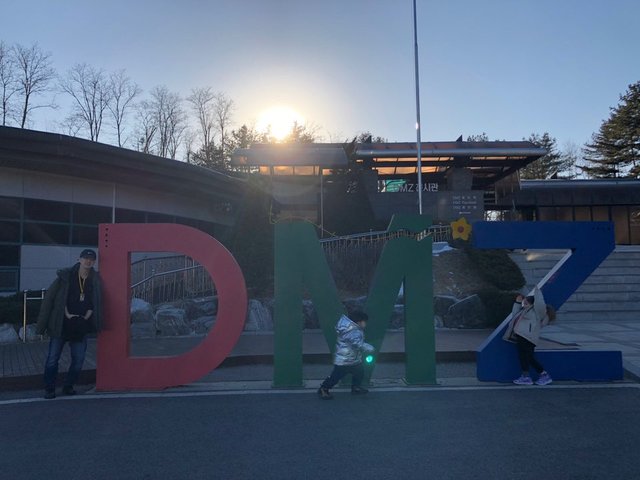
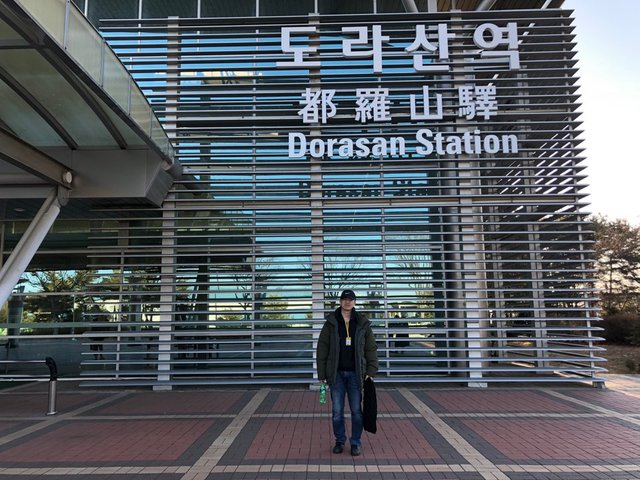
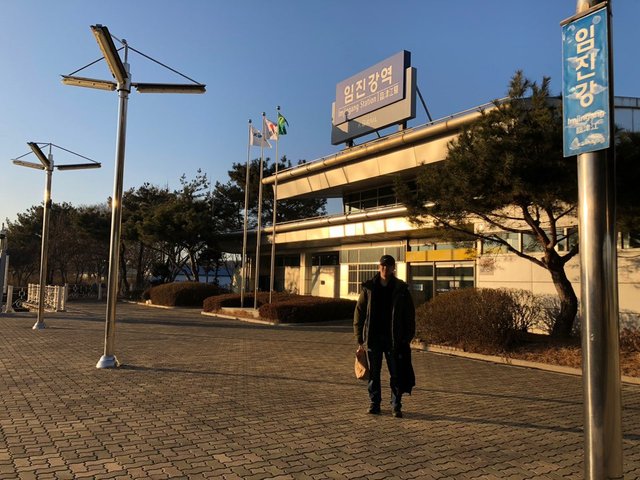

Wow!
Downvoting a post can decrease pending rewards and make it less visible. Common reasons:
Submit
long time no see!
Downvoting a post can decrease pending rewards and make it less visible. Common reasons:
Submit
Congratulations @twotoedsloth! You have completed the following achievement on the Steem blockchain and have been rewarded with new badge(s) :
Click here to view your Board
If you no longer want to receive notifications, reply to this comment with the word
STOPDownvoting a post can decrease pending rewards and make it less visible. Common reasons:
Submit